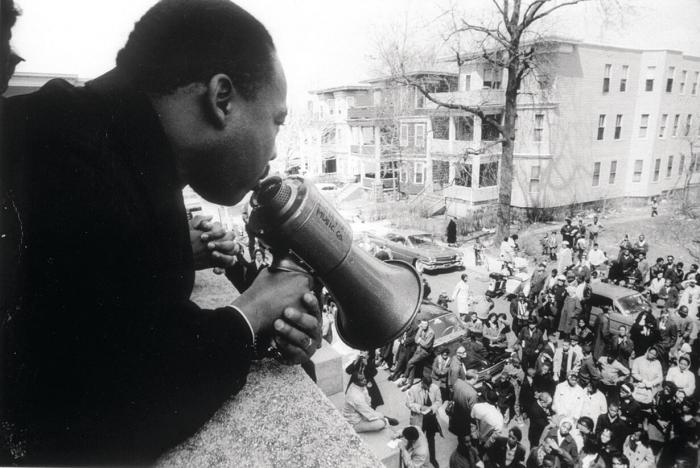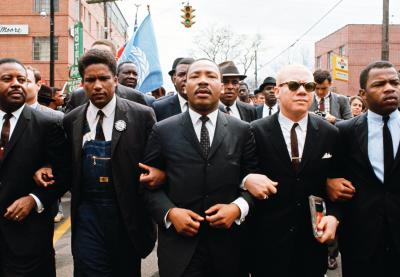As we were working on this issue of Teaching Tolerance magazine, my colleagues and I were brainstorming connections between Congressman John Lewis's essay, "Reflections on a Dream Deferred" and the legacy of Dr. King's dream. I commented that while the six of us (three white and three black) were a realization of the dream, the fact that we were sitting around a table at the Southern Poverty Law Center (SPLC) continuing the fight for justice and equality also symbolized the dream's deferment.
Our conversation took me back to one I had not too long ago with my father about the connection between his former struggle and my present. It's a sad reality that as legal redress chairman for the NAACP my father worked towards the desegregation of the St. Louis Public Schools nearly three decades ago. Yet today, as I embark on my work in education, schools are re-segregating and the academic gap is ever-increasing.
Although it was through my professional career that I first took intense notice of social inequalities, it was through childhood experiences that I was first exposed. I admit, I was a privileged child — my father a prominent attorney, his wife a well-established medical doctor and my mother a popular community arts administrator — but through their work I witnessed widespread community oppression.
My father never hid the realities of our unjust world; instead, he found ways to incorporate it into our social development and to foster critical thinking. Whenever I would outwit him, he would say, "See…you're smarter than a lawyer." I guess that's why he was so disappointed the day I told him I wanted to be a schoolteacher. Being "smarter than a lawyer," to him, meant being more than just a "civil servant."
The irony, of course, was that his fight for educational equality piqued my desire to fight for children's rights in the trenches of the classroom instead of in the courtroom.
Like most novice teachers I first stepped foot in the classroom with hopes of saving the children and changing the world. Almost at once, I was labeled a "trouble maker." My problem, I was told, was that my unrealistic dreams needed a serious reality check.
I struggled my first two years of elementary school teaching in Atlanta, but in my third, a sympathetic associate superintendent saved me with a way to redirect my efforts. She told me her school system was looking for neophytes that they could mold into 30-year veterans. She said that only a certain "type" of teacher could remain silent long enough to last three decades and that I wasn't one of them. She confirmed that the ideas I presented in faculty meetings and that my methods for reaching the students were insightful, but that as a non-tenured teacher with only a bachelor's degree in education, I would never get the respect of my colleagues necessary to put my theories into operation. At the end of that year, I resigned from my job, packed up my family and moved 200 miles west across the Georgia state line to the University of Alabama where I worked towards adding the letters M, A, P, h, and D behind my name, respectively.

From a window near my desk on the fourth floor of the SPLC office in Montgomery, the sweep of my gaze takes in this tableau: Dexter Avenue Baptist Church, where Dr. King was pastor; the state capitol of Alabama, where Gov. George Wallace fought so hard against the inclusion of African American citizens; and the downtown bus stop where Rosa Parks made history. I'm not a lawyer, but as an educator I am continuing the fight my father started over 40 years ago. I know he is as proud of me as I am of myself.
I am both a dream deferred and one that has gone beyond personal expectations. Perhaps my reality didn't need checking after all. Perhaps someday I will change the world if ever so slightly and save a few children along the way.
